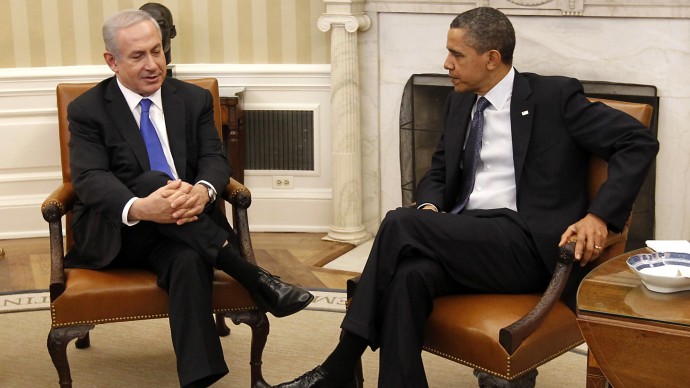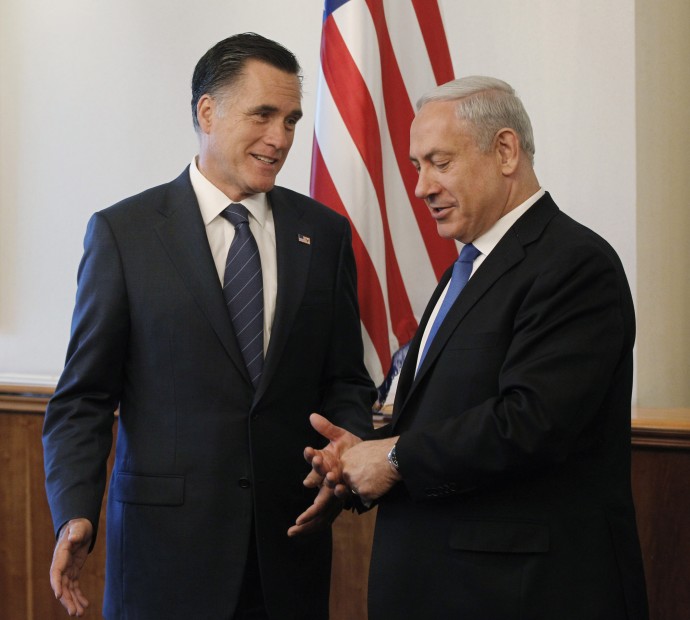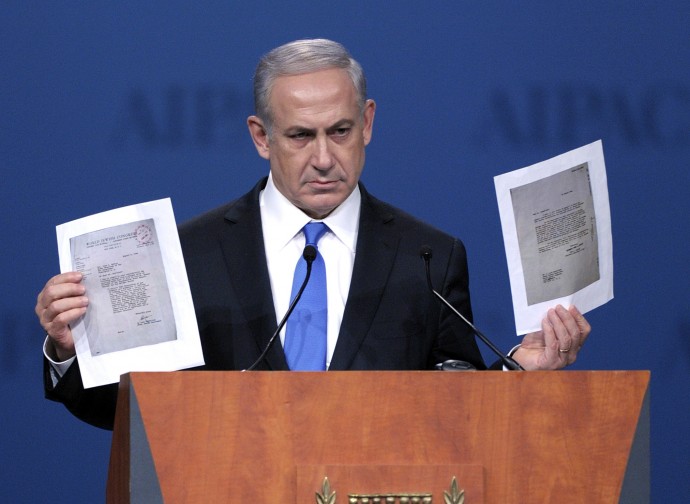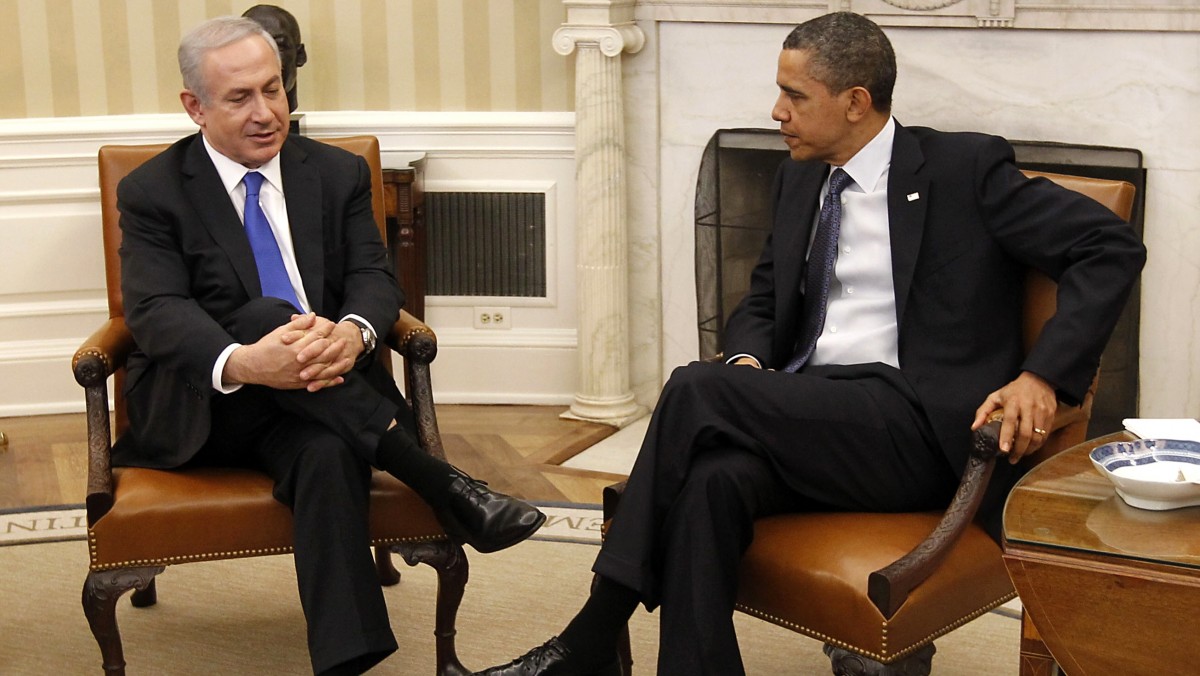
(CHICAGO) — On July 28, AP reported it. Anonymous sources were cited. The CIA’s Tel Aviv station chief discovered « sensitive equipment he used (at home) to communicate with » headquarters personnel in Langley, Va. was compromised.
He told his superiors. It happened to Washington’s previous station chief. It wasn’t coincidental. It showed allies spy on each other. Israeli intelligence spies on its U.S. counterparts.
A CIA official in Israel discovered « the food in (his) refrigerator had been rearranged. » Washington blames Israel’s security services for these incidents. It shows what’s well known but ignored publicly.
Netanyahu spokesman Mark Regev claims, « Israel does not spy on the United States of America. »
He lied. Israel spies every day in every way it thinks it can get away with. Before 9/11, the FBI uncovered a massive U.S.-based spy ring. Israel ran it. It remains active.
In the process, it betrays America. Numerous Israeli citizens are involved. They have close ties to foreign military, criminal and intelligence sources. They reportedly breached U.S. law enforcement wiretaps earlier.
In 2011, former CIA counterintelligence specialist/military intelligence officer Philip Giraldi accused Israel of stealing everything it gets its hands on. It includes military and industrial secrets.
« The reality of Israeli spying is indisputable, » he said. « Israel always features prominently in the annual FBI report. »
It’s called, « Foreign Economic Collection and Industrial Espionage. » In 2005, it said, « Israel has an active program to gather proprietary information within the United States. »

« These collection activities are primarily directed at obtaining information on military systems and advanced computing applications that can be used in Israel’s sizable armaments industry. »
Proprietary commercial and industrial information is also stolen. Israel recruits spies. They use electronic methods. They hack into computers for information.
Washington’s Government Accountability Office (GAO) said Israel « conducts the most aggressive espionage operation against the United States of any U.S. ally. »
The Pentagon accused Israel of « actively engag(ing) in military and industrial espionage in the United States. An Israeli citizen working in the U.S. who has access to proprietary information is likely to be a target of such espionage. »
FBI whistleblower John Cole said Justice Department officials ordered dozens of Israeli espionage cases dropped. At issue was political pressure.
Washington gives Israel billions of dollars annually in aid, the latest weapons and technology and numerous other special privileges. In return, it steals U.S. state and civilian secrets.
Despite close U.S.-Israeli ties, « U.S. national security officials consider Israel to be, at times, a frustrating ally and a genuine counterintelligence threat. »
AP stopped short of explaining how Israel menaces regional and global nations. It’s nuclear armed and dangerous. It has stockpiles of chemical and biological weapons.
In his 1991 book, « The Samson Option: Israel’s Nuclear Arsenal and American Foreign Policy, » Seymour Hersh explained its strategy to launch a massive nuclear counterattack if survival is threatened. Other analysts say the same thing.
AP focused on compromised intelligence. It said Israel was also « implicated in U.S. criminal espionage cases and disciplinary proceedings against CIA officers and blamed in the presumed death of an important spy in Syria for the CIA during the administration of President George W. Bush. »
« The CIA considers Israel its No. 1 counterintelligence threat in the agency’s Near East Division. » It oversees regional spying. It protects national secrets from spies. It believes other regional states pose less of an intelligence threat than Israel.
It uses highly sophisticated professional services. In terms of technical capability and human resources, it rivals America’s best. It has access to the highest U.S. political, military and intelligence sources.
Despite close ties, disagreements exist. Former CIA officer Joseph Wippl called it « a complicated relationship. They have their interests. We have our(s). For the U.S., it’s a balancing act. »
Other countries closely watch how « Washington characterizes its relationship with Israel. » Ahead of November elections, expect nary a discouraging word to be heard openly.
 Mitt Romney hyperbole claims otherwise. He criticized Obama’s « shabby treatment. » Appealing to Jewish voters, he said Israelis « deserve better. »
Mitt Romney hyperbole claims otherwise. He criticized Obama’s « shabby treatment. » Appealing to Jewish voters, he said Israelis « deserve better. »
On July 30, Haaretz called his Jerusalem speech his « voice but Netanyahu’s words. » A select, « extremely friendly, » audience was underwhelmed.
One observer said this happens « when a weak American leader is forced to make unnecessarily controversial remarks in order to project a sense of strength he or she doesn’t naturally exude. »
His weakness masquerades as strength. Obama’s essentially the same, but he delivers his lines better. Both men, their handlers and hangers on infuriate Palestinians and others by spurning them.
Earlier this year, Obama said Washington and Israel « never had closer military and intelligence cooperation. » Israeli Washington spokesman Lior Weintraub affirmed his country’s close ties to America.
He called AP’s report false, saying, « Israel’s intelligence and security agencies maintain close, broad and continuous cooperation with their U.S. counterparts. »
« They are our partners in confronting many mutual challenges. Any suggestion otherwise is baseless and contrary to the spirit and practice of the security cooperation between our two countries. »
CIA officials declined comment. Tensions remain strained. The National Security Agency (NSA) keeps close tabs on Israel. Reagan’s « trust but verify » comment applies.
Washington’s mindful of Israel’s belligerence. It doesn’t want to be caught napping if it attacks a neighbor without its knowledge.
Matthew Aid wrote, « The Secret Sentry: The Untold History of the National Security Agency. » He said America began spying on Israel before 1948. Hebrew linguists now monitor intercepted communications.
Israel isn’t Washington’s most trusted ally. Select others have that distinction. They include Britain, Australia, Canada and New Zealand. They share intelligence and agree not to spy on each other.
Israel has « second-tier » status. It’s called « Friends on Friends, » it comes from the phrase « Friends don’t spy on Friends. » The arrangement dates back decades.
Israel’s Mossad and Shin Bet are « suspected of recruiting U.S. officials and trying to steal American secrets. »
Earlier, two female CIA officers were fired for having unreported Israeli contacts. One admitted a relationship with an Israeli Foreign Ministry official.
Jonathan Pollard’s case is well known. In 1987, he was convicted of spying for Israel. He got life in prison. Israel wants him released. Netanyahu applies pressure.

Disingenuously he called Israel’s action « wrong and wholly unacceptable. »
CIA officials wonder how many more Pollards now spy today. They’re wary.
Former U.S. Naval Criminal Investigative Service official Ronald Olive said a task force was formed to learn what Pollard took. Israel was uncooperative. Little was revealed. It represented « a speck in the sand. »
In 2008, former Army mechanical engineer Ben-Ami Kadish pled guilty to giving Israel classified information in the 1980s.
In 2006, a former Defense Department analyst got 12 years in prison for supplying Israel and two pro-Israeli lobbyists with state secrets.
The CIA ranks world intelligence agencies on their willingness to help America’s war on terror. Earlier, Israel « fell below Libya. » With friends like these, who needs enemies.
Israel gets virtually anything it wants from Washington. At times in return it’s cooperative. Other times it offers little. Sometime friends aren’t reliable. Those in need are friends indeed.
Obama claims an « unshakable commitment to Israel. » It’s not reciprocated in kind.
CIA officials « still bristle over the disappearance of a Syrian scientist who during the Bush administration was the CIA’s only spy inside Syria’s military program to develop chemical and biological weapons. »
He gave the agency « extraordinary information about pathogens used in the program. » Former U.S. officials confirmed it.
Although the agency « never formally concluded that Israel was responsible, CIA officials complained » about Israelis leaking « information to pressure Syria to abandon the program. »
Its officials learned « who had access to the sensitive information and eventually identified the scientist as a traitor. Before he disappeared and was presumed killed, » he told his CIA contact that « Syrian Military Intelligence » fingered him.
On July 29, Mossad-connected DEBKAfile (DF) headlined, « An ill wind blows between U.S. and Israeli intelligence over attack on Iran, » saying that tensions between two allies heightened over AP saying the CIA considers Israel its main regional counterintelligence threat.
DF claims leaked information AP reported came ahead of Romney’s Israeli visit. At issue was deterring him from using it « to review Jonathan Pollard’s life sentence » if elected. At the CIA’s behest, all previous presidents refused.
DF also said it relates to CIA agents looking for any information relating to Israel potentially attacking Iran’s nuclear facilities unilaterally.
DF’s Washington sources say watch out for October. It’s mentioned as a possible strike month. Obama officials allegedly want Israel restrained but aren’t sure they can do it.
On July 14, U.S. National Security Advisor Tom Donilon visited Israel. He learned that Netanyahu is close to decision day on Iran. He hasn’t yet picked a date. Whether it’s so or bluster isn’t known. Israeli saber rattling is notorious. So is America’s.
Anything made public raises suspicions. Aggressors don’t warn targets about imminent attacks and name likely dates. On August 1, Defense Secretary Leon Panetta heads to Israel.
He won’t learn more than other administration officials before him. Netanyahu is tight-lipped. DF’s Western intelligence sources say the CIA maintains an extensive network of operatives in Israel. As a result, tensions between the two allies remain strained.
Will Israel unilaterally attack Iran? Don’t bet on it. Its history suggests otherwise. Going to war needs U.S. approval.
Circumventing its paymaster partner risks trouble. One day what joined both nations together could turn the relationship asunder.
Harming Washington’s regional interests could trigger it. Israel may be aggressive, but it’s not stupid. On issues as important as war, both nations are partnered on which way they’ll go.


